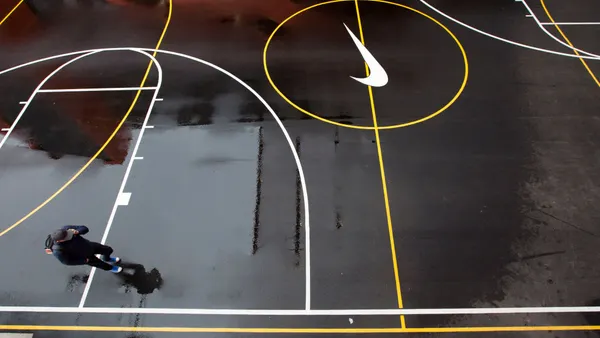Dive Brief:
- The National Restaurant Association's Restaurant Law Center and the Texas Restaurant Association have filed a lawsuit against the Department of Labor over its revisions to the Fair Labor Standards Act tip regulations, which are set to take effect Dec. 28.
- The DOL's new 80/20 rule applies to tipped employees performing work that produces tips and tasks that directly support tip-producing work. The latter may only be considered part of an employees' tipped occupation if it constitutes less than 20% of the employee's hours in a workweek.
- The plaintiffs claim that the new "Dual Jobs" tip credit regulation, though proposed as a revision of a Trump-era rule, acts as a new statute and conflicts with the Fair Labor Standards Act, according to a release sent to Restaurant Dive from the NRA. The NRA also claims the regulation will "severely impact small and local restaurant owners' ability to operate their businesses."
Dive Insight:
The pushback to the updated tip credit regulation is part of a regulatory conflict over whether businesses or employees should derive greater benefits from tipping. Three new tip rules have been put into effect by the Biden administration, and these rules were meant to create additional earning opportunities for employees. However, this lawsuit contends the rules may contribute additional burdens and confusion for operators.
"The Administration's attempt to improperly use the regulatory process to legislate changes to the 'Tip Credit' would severely impact operators who are currently focused on labor and supply chain shortages and working to keep their doors open after an economically devastating pandemic," Angelo I. Amador, executive director of the Restaurant Law Center, said in a statement. "As we have previously stated, this is an arbitrary change that only creates confusion and enormous compliance challenges for restaurants."
The plaintiffs also emphasized the difficulty of complying with the 80/20 rule. In a statement, Emily Williams Knight, CEO of the Texas Restaurant Association, said, "because restaurant employees often move rapidly from one task to another throughout a shift, there is no practical way for an employer to keep the task-by-task records the administration's regulations would demand to avoid potential liability."
Compliance could require additional resources for monitoring and classifying tasks workers perform, which could drive up operating costs, according to the NRA statement.
The Small Business Administration Office of Advocacy has also expressed concern over the revisions and asked the Department of Labor to withdraw the regulation and reassess the economic impact of the rule on businesses.
However, the potential impact on wages through an 80/20 revision could help keep workers in the industry, which faces an all-time high quit-rate. Nearly 80% of restaurant workers say they want to leave their jobs because of low wages and tips.
Though the COVID-19 pandemic may have complicated the tipping debate, regulatory changes to tipping law are not new — the Obama and Trump administrations also used the DOL's regulatory power to shape tipping practices. This lawsuit is no surprise as the regulatory struggle continues.














